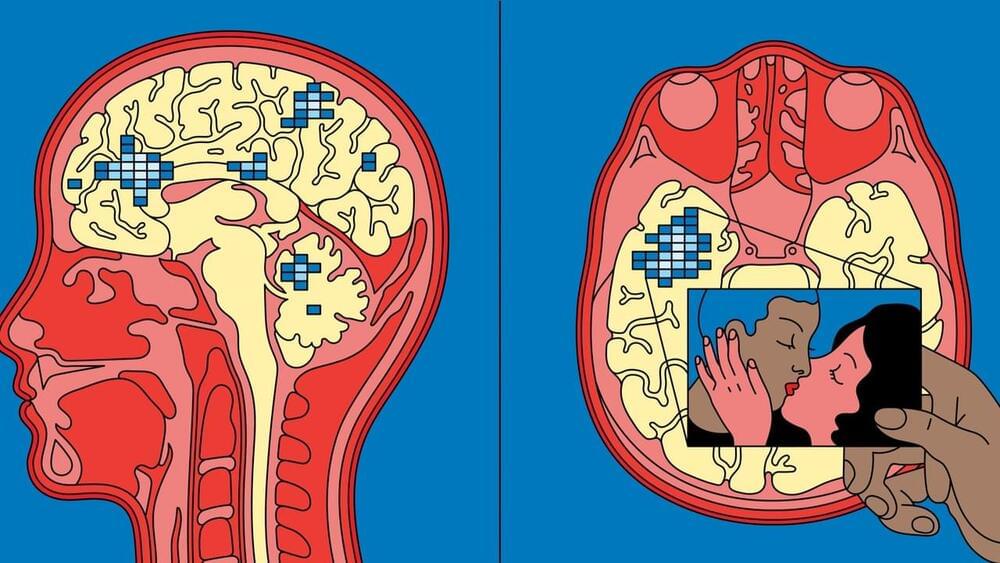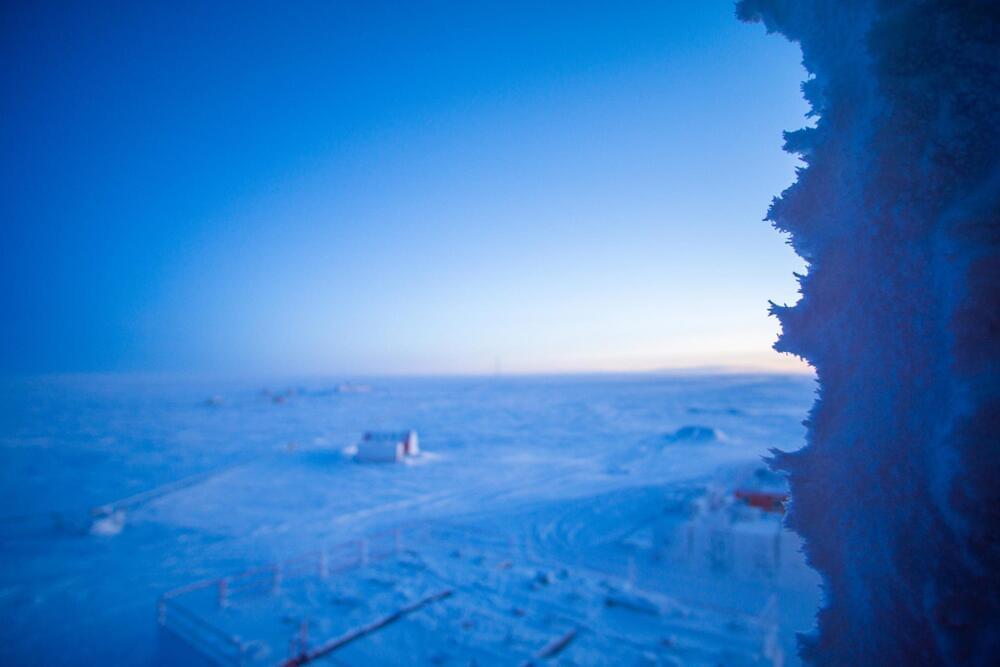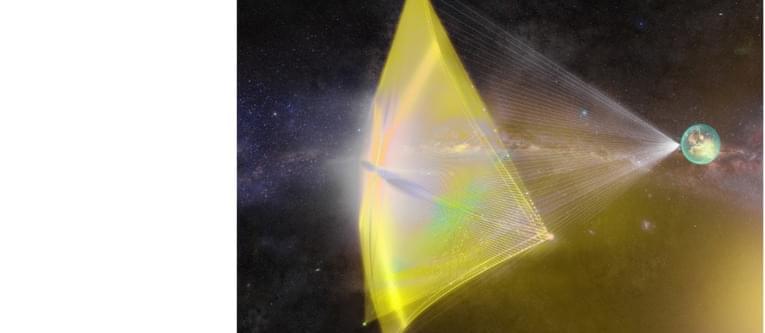Category: science – Page 75

The Science of Aliens, Part 7: How Would WE React to Discovering Alien Life
What the discovery of alien life means for our human society. For more info, see.
Ready or not, this discovery is likely to happen soon. In anticipation of discovering alien life, conferences have been held on what such a discovery would mean for humanity. But how would we as humans react to this discovery? That reaction would depend on how advanced the alien life is and whether it would be considered a danger to us. Let´s start with the possibility that we find microbial life on another planet. In a seminal paper published in Frontiers of Psychology, a team of scientists led by Jung Kwon from Arizona State University reported that people would react more positively than negatively to discovering alien life. They partially based their findings on how people reacted to the announcement of fossil life in the Martian meteorite ALH84001, which created excitement in the scientific community (the discovery itself, however, has remained controversial till today and it is unclear whether it is evidence for the existence of past life on Mars).

A philosopher of science explains how birds perceive time and space differently than humans
The human and the bird worlds overlap, particularly in cities and suburbs where we have to tolerate each other’s presence. With this in mind, a group of Spanish scientists set out earlier this year to observe whether humans’ changing behavior as a result of the pandemic had affected our feathered friends. Published in the journal Proceedings of the Royal Society B, the researchers’ findings repeatedly surprised them. For one thing, scientists expected birds to be more abundant in urban and town spaces, places that humans were suddenly scarcer in. This proved not to be the case. Yet birds did change their routines in response to humans become quieter. Notably, some species of male birds became louder and more musical, as the reduction of noise pollution allowed them to perform their calls earlier in the day.
It is strange to think that birds live among us, and yet are so alien in their everyday routines and lives. Vinciane Despret — a Belgian philosopher of science and associate professor at the University of Liège — would like to change that with her new book, “Living as a Bird” (translated by Helen Morrison). Opening with observations about a nearby warbling blackbird, Despret immerses readers into the world as it is perceived by those with wings, beaks and talons. While birds of different species will co-exist peacefully during the migratory months of winter, they ostentatiously sing once spring comes and become very aggressive with other birds. To understand both this process and birds’ mindsets more broadly, Despret approaches the subject with the vivid prose of a creative writer instead of the dry, dense verbiage of the detached scientist.
If there is a common theme throughout the book, it is that differences between species (and, for that matter, within the biological sexes in each species) are layered, intersected and rarely as simple as we might prefer to think. Using this understanding as a narrative lens, Despret’s book explores how birds transition from peacefully co-existing during the winter migration to a complex social system in which they sing aggressively, form alliances and behave territorially. Despret told Salon that there were several important lessons she learned about how a bird’s point of view will differ from a human’s. The first involves their perception of time.
A conversation with AI luminaries | Amazon Science
Amazon Scholars Michael I. Jordan and Michael Kearns, and Amazon vice president and distinguished scientist Bernhard Schölkopf discuss the future of AI ahead of NeurIPS 2021. Watch the recorded event where these industry luminaries cover a range of topics including the history of ML in the past decade, its social impacts, the role of causal reasoning in ML, and whether or not autonomous, general-purpose intelligence should really be the aim of AI.
Follow us:
Website: https://www.amazon.science.
Twitter: https://twitter.com/AmazonScience.
Facebook: https://www.facebook.com/AmazonScience.
Instagram: https://www.instagram.com/AmazonScience.
LinkedIn: https://www.linkedin.com/showcase/AmazonScience.
Newsletter: https://www.amazon.science/newsletter.
#AmazonScience #NeurIPS #NeurIPS2021 #ArtificialIntelligence #MachineLearning #AI #ML
These gorgeous images could transform science education
Science isn’t all lab coats and test tubes. Beautiful visuals can engage people—especially students—and inspire them to learn about science more broadly.
Scientists have often invited the public to see what they see, using everything from engraved woodblocks to electron microscopes to explore the complexity of the scientific enterprise and the beauty of life. Sharing these visions through illustrations, photography, and videos has allowed laypeople to explore a range of discoveries, from new bird species to the inner workings of the human cell.
As a neuroscience and bioscience researcher, I know that scientists are sometimes pigeonholed as white lab coats obsessed with charts and graphs. What that stereotype misses is their passion for science as a mode of discovery. That’s why scientists frequently turn to awe-inducing visualizations as a way to explain the unexplainable.
The BioArt Scientific Image and Video Competition, administered by the Federation of American Societies for Experimental Biology images with the public that are rarely seen outside the laboratory in order to introduce and educate laypeople about the wonder often associated with biological research. BioArt and similar contests reflect the lengthy history of using imagery to elucidate science.

Can Science Survive the Death of the Universe?
Let me back up a moment. I recently concurred with megapundit Steven Pinker that over the last two centuries we have achieved material, moral and intellectual progress, which should give us hope that we can achieve still more. I expected, and have gotten, pushback. Pessimists argue that our progress will prove to be ephemeral; that we will inevitably succumb to our own nastiness and stupidity and destroy ourselves.
Maybe, maybe not. Just for the sake of argument, let’s say that within the next century or two we solve our biggest problems, including tyranny, injustice, poverty, pandemics, climate change and war. Let’s say we create a world in which we can do pretty much anything we choose. Many will pursue pleasure, finding ever more exciting ways to enjoy themselves. Others may seek spiritual enlightenment or devote themselves to artistic expression.
No matter what our descendants choose to do, some will surely keep investigating the universe and everything in it, including us. How long can the quest for knowledge continue? Not long, I argued 25 years ago this month in The End of Science, which contends that particle physics, cosmology, neuroscience and other fields are bumping into fundamental limits. I still think I’m right, but I could be wrong. Below I describe the views of three physicists—Freeman Dyson, Roger Penrose and David Deutsch—who hold that knowledge seeking can continue for a long, long time, and possibly forever, even in the face of the heat death of the universe.

The Science of Mind Reading
𝙏𝙝𝙚 𝙎𝙘𝙞𝙚𝙣𝙘𝙚 𝙤𝙛 𝙈𝙞𝙣𝙙 𝙍𝙚𝙖𝙙𝙞𝙣𝙜
𝙍𝙚𝙨𝙚𝙖𝙧𝙘𝙝𝙚𝙧𝙨 𝙖𝙧𝙚 𝙥𝙪𝙧𝙨𝙪𝙞𝙣𝙜 𝙖𝙜𝙚-𝙤𝙡𝙙 𝙦𝙪𝙚𝙨𝙩𝙞𝙤𝙣𝙨 𝙖𝙗𝙤𝙪𝙩 𝙩𝙝𝙚 𝙣𝙖𝙩𝙪𝙧𝙚 𝙤𝙛 𝙩𝙝𝙤𝙪𝙜𝙝𝙩𝙨—𝙖𝙣𝙙 𝙡𝙚𝙖𝙧𝙣𝙞𝙣𝙜 𝙝𝙤𝙬 𝙩𝙤 𝙧𝙚𝙖𝙙 𝙩𝙝𝙚𝙢.
𝙏𝙝𝙚 𝙉𝙚𝙬 𝙔𝙤𝙧𝙠𝙚𝙧:
James Somers writes about researchers in the fields of neuroscience and A.I. pursuing age-old questions about the nature of thoughts—and learning how to read them.

Extreme Isolation in Antarctica, for Science
Applications are now open for the role of ESA-sponsored research medical doctor at Concordia research station in Antarctica for the 2023 winter over season. Do you have a medical degree, an interest in space exploration and the fortitude to spend almost a year in isolation in the world’s largest desert? Apply today for this unique post.
The blank backdrop
Located at the mountain plateau called Dome C in Antarctica, the French-Italian base is one of only three that is inhabited all year long.

Science, industry team up in Italy to zap virus with laser
ROME, July 2 (Reuters) — A United Nations-backed scientific research centre has teamed up with an Italian tech firm to explore whether laser light can be used to kill coronavirus particles suspended in the air and help keep indoor spaces safe.
The joint effort between the International Centre for Genetic Engineering and Biotechnology (ICGEB) of Trieste, a city in the north of Italy, and the nearby Eltech K-Laser company, was launched last year as COVID-19 was battering the country.
They created a device that forces air through a sterilization chamber which contains a laser beam filter that pulverizes viruses and bacteria.

How Science Can Help Us to Understand the Past but also Tackle Earth´s Future Challenges
Breakthrough Initiatives held an exciting scientific meeting at the beginning of this week, from exoplanets to technosignatures and the future of life on Earth:
Earlier this week, the Breakthrough Initiatives held the scientific meeting Life in the Universe 2021: Our Past, Present, and Future Selves.